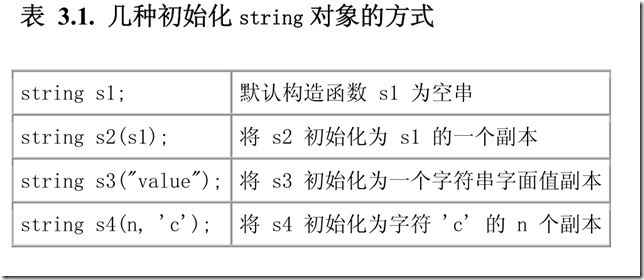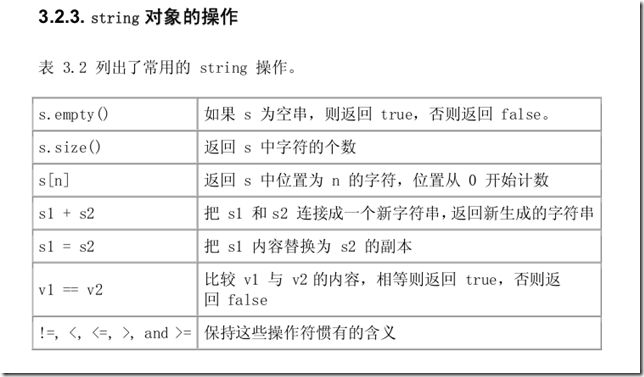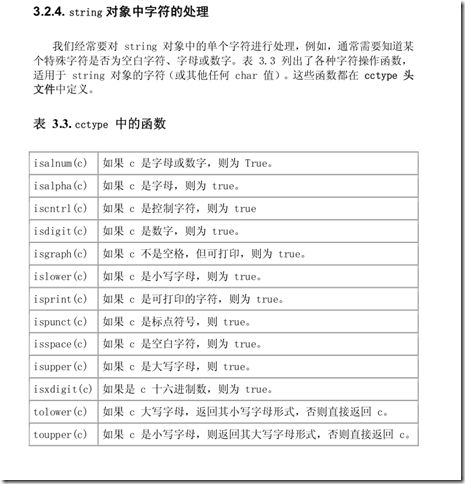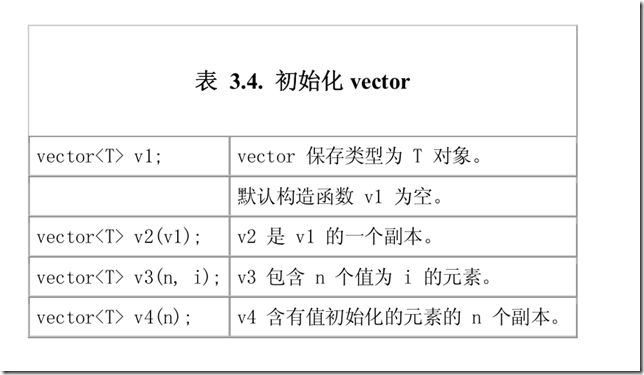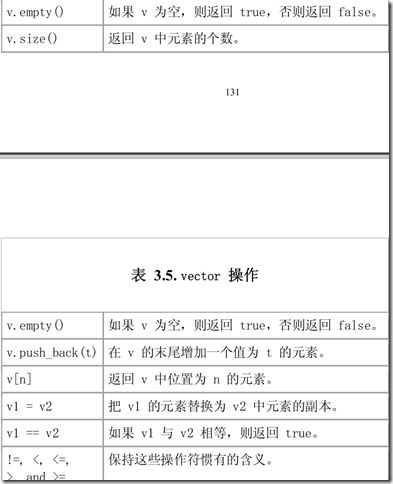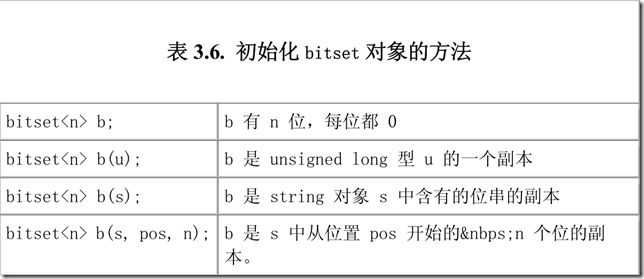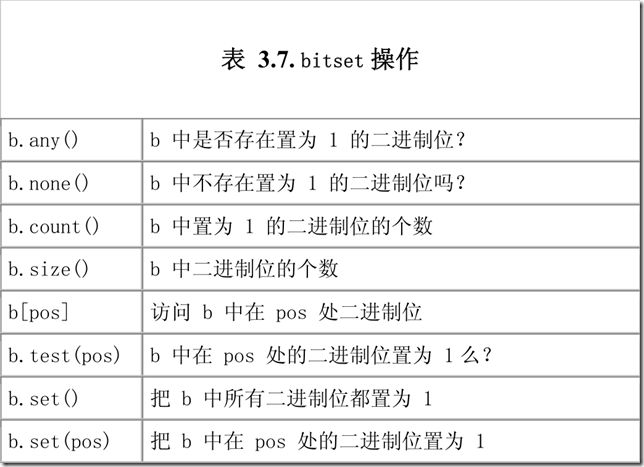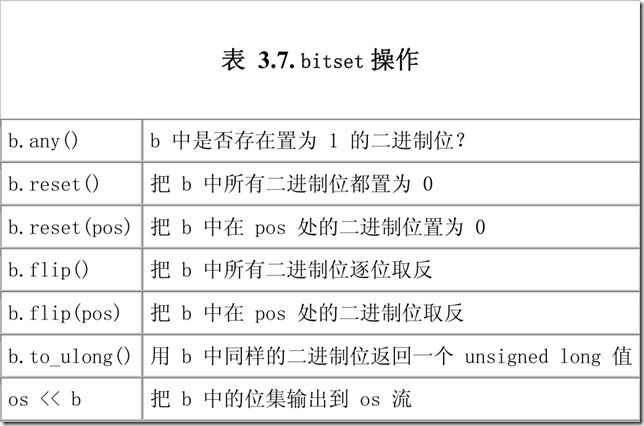(笔记)第三章 标准库类型
1,string,vector,bitset初始化方式、操作
string:
vector:
bitset:
2,isspace函数处理中文字符串问题
先看下面代码:
#include "stdafx.h"
#include <iostream>
#include <string>
#include <cctype>
using namespace std;
int main()
{
string result;
//unsigned char c;
char c;
string a = "你 好";
int flag = 0;
//std::locale::global(std::locale("Chinese_China.936"));
for(string::size_type i = 0; i !=a.size(); i++)
{
c = a[i];
if(isspace(c))
{
flag = 1;
}
else
{
result += c;
}
}
if(flag)
{
cout<<result<<endl;
}
else
{
cout<<"error"<<endl;
return -1;
}
return 0;
}
Vs2010编译运行后会出错: (unsigned)(c + 1) <= 256),发现是isspace出错,于是跟踪到c运行库里看看:
extern __inline int (__cdecl isspace) (
int c
)
{
if (__locale_changed == 0)
{
return __fast_ch_check(c, _SPACE);
}
else
{
return (_isspace_l)(c, NULL);
}
}
继续跟踪,__locale_changed的值为0,调用__fast_ch_check,继续下去来到这里:
#if defined (_DEBUG)
extern "C" int __cdecl _chvalidator(
int c,
int mask
)
{
_ASSERTE((unsigned)(c + 1) <= 256);
return _chvalidator_l(NULL, c, mask);
}
错误出现在这里:_ASSERTE((unsigned)(c + 1) <= 256);仔细观察函数,它的两个参数c和mask都为int类型,然后汉字的gbk编码是把汉字用两个字节表示,其首字节对应0x81-0xFE。这里就会有个char类型到int类型的转换,在vc2010下,char默认为signed char,这样转换为int后,就会变成一个负数,最后在_ASSERTE又被强制转换成unsigned,此时就产生一个很大的数,错误就此产生。
解决方法:
第一种:Char c 改为: unsigned char c;
第二种:std::locale::global(std::locale(""));
第一种方法不做解释,我们看下第二种到底是什么意思:
一样跟踪进去看下c运行库,实在太复杂,好不容易跟到这段(Microsoft Visual Studio 10.0\VC\crt\src\locale.cpp):
_MRTIMP2_PURE locale __CLRCALL_PURE_OR_CDECL locale::global(const locale& loc)
{ // change global locale
locale _Oldglobal;
_BEGIN_LOCK(_LOCK_LOCALE)
locale::_Locimp *_Ptr = _Getgloballocale();
if (_Ptr != loc._Ptr)
{ // set new global locale
_DELETE_CRT(_Ptr->_Decref());
_Setgloballocale(_Ptr = loc._Ptr);
_Ptr->_Incref();
category _Cmask = _Ptr->_Catmask & all;
if (_Cmask == all)
setlocale(LC_ALL, _Ptr->_Name._C_str());
else
for (int catindex = 0; catindex <= _X_MAX; ++catindex)
if ((_CATMASK(catindex) & _Cmask) != 0)
setlocale(_CAT_TO_LC(catindex), _Ptr->_Name._C_str());
}
return (_Oldglobal);
_END_LOCK()
}
当传递参数为NULL时,会比较当前应用程序使用的locale和默认的locale是否一致,如果不一致,将会将默认的locale设置为新的locale。这里的默认locale就是:CodePage936。
3,vector的下标操作不能添加元素
vector<int> ivec; // empty vector
for (vector<int>::size_type ix = 0; ix != 10; ++ix)
ivec[ix] = ix; // disaster: ivec has no elements
此处ivec被定义为一个空的vector对象,ivec[0],ivec[1]..ivec[n]都是不存在的,无法进行这样的赋值,正确的写法是这样:
for (vector<int>::size_type ix = 0; ix != 10; ++ix)
ivec.push_back(ix); // ok: adds new element with value ix
注意:下标操作符只能对确知已存在的元素进行操作
4,何时使用 const 迭代器的?又在何时使用 const_iterator?解释两者的区别。
const迭代器是迭代器常量,该迭代器本身的值不能修改,即该迭代器在定义时需要初始化,而且初始化之后,不能再指向其他元素。若需要指向固定元素的迭代器,则可以使用const迭代器。
const_iterator是一种迭代器类型,对这种类型的迭代器解引用会得到一个指向const对象的引用,即通过这种迭代器访问到的对象是常量。该对象不能修改,因此,const_iterator类型只能用于读取容器内的元素,不能修改元素的值。若只需遍历容器中的元素而无需修改它们,则可以使用const_iterator。
